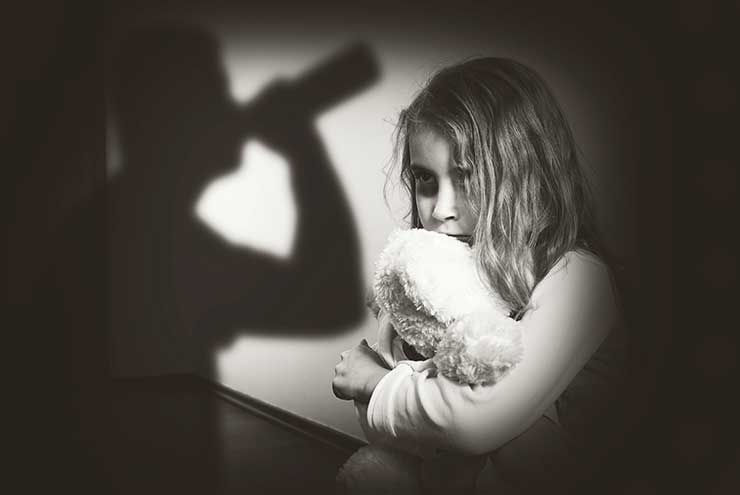The Impact Of Childhood Trauma On Adult Relationships
- Jul 2, 2025
- 4 min read

Childhood has a lasting impact on how we understand ourselves, relate to others, and move through the world. When early life involves neglect, abuse, or ongoing instability, those experiences can shape adult relationships in ways that are often invisible yet deeply felt.
Emotional pain from the past does not always fade with time; it can resurface in how we connect, communicate, and respond to others.
The link between childhood trauma and relationships is real and often misunderstood. Many adults struggle in love, friendships, or family ties without realizing these patterns were set years earlier. Understanding this connection is the first step toward healing.
What Counts as Childhood Trauma?
Trauma in childhood takes many forms. Some children grow up feeling emotionally unseen or unheard. Others live through experiences like verbal or physical abuse, sexual trauma, substance use in the household, or the loss of someone close.
Even chronic instability, such as frequent moves or unpredictable caregiving, can leave emotional marks. These early experiences affect how the brain develops, particularly in areas tied to memory, emotion, and managing stress.
Children may not have the tools or language to make sense of what’s happening. Instead, they learn to adapt. Some become watchful and cautious, others emotionally distant or overly accommodating. These coping strategies help them get through childhood.
However, in adulthood, the same patterns can make it hard to feel secure in relationships or believe that closeness is safe.
Unseen Wounds That Show Up Later
Relationship struggles rooted in trauma often go unnoticed. A person might assume they are simply “too sensitive” or “not good at love.” Yet what may seem like a personality trait is often a protective response developed early on. Unprocessed trauma can lead to emotional numbness, fear of vulnerability, difficulty expressing needs, or patterns of mistrust.
These reactions are not signs of weakness or failure. They are survival responses that the nervous system continues to carry, even in relationships that are safe and supportive. Without awareness and healing, the body may still respond as though it is bracing for harm. This can cause someone to retreat emotionally, feel easily triggered, or push others away before they get hurt.
Healing these wounds takes time, compassion, and often the support of a trauma-informed therapist. With guidance, it becomes possible to recognize the patterns, create new ways of relating, and move toward healthier, more connected relationships.
How Childhood Trauma Affects Attachment Styles
The bonds formed in early childhood influence how people connect with others later in life. When caregivers offer consistent care and emotional safety, children typically develop secure attachment styles.
They learn to trust, communicate openly, and handle conflict with confidence. In contrast, children raised in unpredictable, distant, or harmful environments often develop different attachment strategies to protect themselves.
Adults with anxious attachment may fear abandonment and seek constant reassurance. They often overanalyze interactions or worry that they are too much. Others develop avoidant attachment, keeping emotional distance and struggling to express vulnerability.
Some experience disorganized attachment, where the desire for closeness is mixed with fear or confusion. These patterns are not flaws but adaptive responses to early experiences.
The Cycle of Repeating Old Patterns
The human brain gravitates toward what it knows. A person raised in chaos or emotional neglect may be drawn to partners who mirror those early experiences. This search for the familiar is not a conscious decision. It can feel safe, even when it causes pain.
Change begins with awareness. Recognizing how childhood experiences influence adult relationships allows space for growth. This is not about blaming the past but about gaining the tools to make different choices. You are not defined by what happened to you. Your patterns can change with care, patience, and support.
Healing Childhood Trauma and Relationships Through Therapy
Therapy offers a grounded space to explore the impact of childhood trauma on relationships. A therapist can help uncover the patterns you developed as a child and understand how they continue to affect you. This awareness can bring relief, clarity, and a new sense of possibility.
In the therapy room, you can process past hurt, learn new ways to communicate, and build emotional safety. You can begin to trust yourself and others in a deeper way. With time, you gain the confidence to set healthy boundaries, form secure connections, and respond to others with more balance.
Next Level MHC’s therapists specialize in the relationship between early trauma and adult intimacy. We support clients through every stage of healing and bring tools that strengthen self-awareness and improve connection with others. Whether you are navigating a personal transformation or working to improve a relationship, our team is here to support your growth.
Why Next Level MHC Is a Safe Place to Heal
Healing from trauma involves more than sharing your story. It begins with feeling safe, supported, and truly seen. At Next Level MHC, we create a caring and inclusive space where healing is approached with intention and compassion. Our clinicians are trained in trauma-informed care and bring diverse perspectives that reflect the clients we serve.
Cultural understanding is central to how we work. Our team honors the complexity of your background and experiences, offering a therapeutic relationship rooted in respect. Services include individual therapy, relationship and intimacy counseling, sex therapy, and group sessions.
If past experiences are shaping how you connect today, we are here to help you navigate that path with care.
Take the First Step Toward Healing
Emotional patterns do not have to keep repeating. If you feel stuck in cycles of mistrust, disconnection, or conflict, therapy brings a path forward. Next Level MHC is currently welcoming new clients, with flexible online sessions to fit your schedule. Our intake process is designed to thoughtfully match you with a therapist aligned with your needs and story.
We believe in therapy that respects your identity, your background, and your pace. If we are not the right fit, we will help you find someone who is.
Healing is possible, and support is available. You just have to take the first step.
Reach out today.



Comments